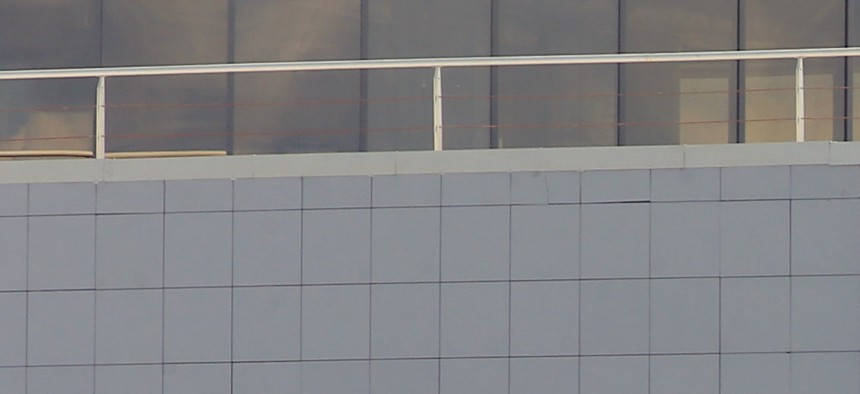Those G20 Briefings in Your Inbox May Be Laced With Spyware

Journalists stand outside the media center of the G20 summit in St. Petersburg Wednesday. Dmitry Lovetsky/AP
Emails to influential world leaders contain UK government documents with tracked changes -- and malware, researchers say.
Infected emails seemingly bearing feedback on UK government draft G20 briefings -- that actually steal data -- are targeting government officials and economic development leaders ahead of this week's global summit in Russia, researchers say. Spearphishing campaigns that coincide with the G20 are common, but this time researchers are questioning whether the documents might truly be genuine.
According to cybersecurity firm Symantec, a brief message in the body of the email thanks the recipient for circulating a series of "building block" documents on various global issues and new UK feedback on the documents.
"What is interesting about these documents is that each of them has track changes enabled and contains the reported comments from the UK called out in the original email," Symantec researcher Satnam Narang writes in a blog post. "At this time, we cannot verify the authenticity of these documents, but from our observation, modifications were made to them earlier this month, which states that they were last modified by a user named 'UK Government."
The five files are labeled "UKcomments," "UK-Building Block_DEVELOPMENT," "UK-Building Block_EMPLOYMENT," "UK-Building Block_ANTICORRUPTION" and "UK-Building Block_TRADE.
When the recipient tries to open a certain files, the click simultaneously executes malicious software and displays the non-malicious text.
The email claims to be sent on behalf of a G20 representative.
Researchers have identified the malware as "PoisonIvy," a virus developed by a Chinese speaker that creates a backdoor on the compromised computer for the hacker to extract information. It also can monitor key strokes.
The purported UK comments shown to the victim include, for example, "While recognising that there is no 'one size fits all' labour market policy, actions to promote more and better jobs could include: Improve job quality, including working conditions, payment of adequate salaries, access to social protection."
Another G20-related spearphishing campaign preying on influential individuals apparently involves a known hacker team tied to the Chinese military, according to Kaspersky Lab cyber specialists.
Symantec told the New York Times a couple of years ago that March 2009 set a record for spearphishing attacks "when there was a surge that coincided with a G20 summit meeting."






